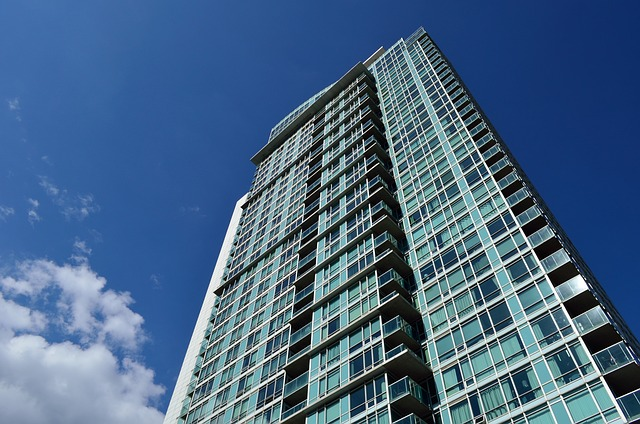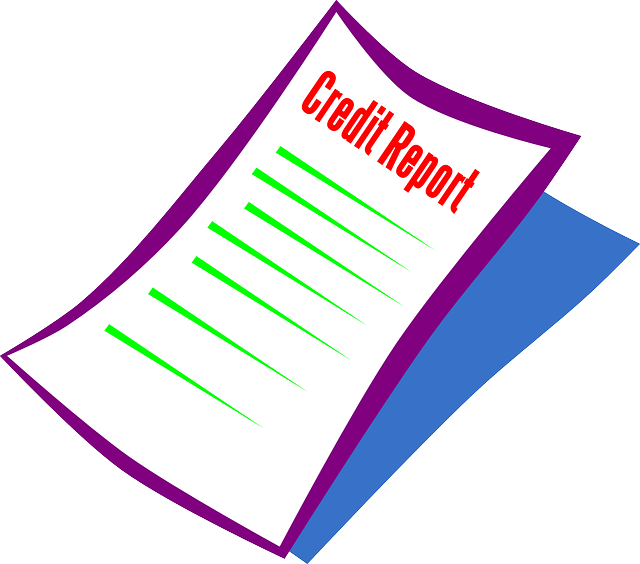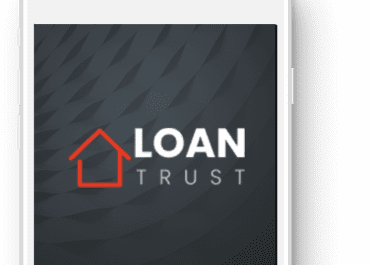Condo Mortgage Rates: Compare And Get Today’s Best Rates
Condo interest rates can be a tricky subject for many condo buyers. It is important to understand what they are and how they work before committing to a loan agreement. Essentially, condo interest rates refer to the additional percentage of the loan amount that borrowers will pay on top of the principal borrowed amount. This extra cost is determined by various factors, including the borrower’s credit score, loan term, and current state of the economy.
Condo mortgage rates today play a crucial role in determining the affordability of purchasing a condominium. These condo refi rates, influenced by various factors such as market conditions, creditworthiness, and loan terms, directly impact borrowers’ monthly mortgage payments. Lower condo mortgage rates can lead to more manageable monthly payments, making homeownership within reach for many individuals. Conversely, higher rates may result in higher monthly mortgage obligations, potentially impacting borrowers’ budgeting and financial planning. Therefore, prospective condo buyers should closely monitor current mortgage rates to make informed decisions about their investment. Consulting with mortgage lenders and comparing rates from different financial institutions can help borrowers secure the most favorable condo mortgage rates, aligning with their long-term financial goals and ensuring comfortable monthly payments.

When purchasing a condo, it is crucial to have a clear understanding of all the terms and conditions in your loan agreement, including your interest rate. This will help you avoid any surprises or unexpected expenses down the line.
Your credit score plays a significant role in determining your condo interest rate. A higher credit score typically results in lower interest rates since lenders view borrowers with good credit as less risky investments. On the other hand, those with lower credit scores may face higher interest rates due to their perceived higher risk.
Loan term also affects your condo loan interest rate. Shorter-term loans typically come with lower interest rates than longer-term loans since lenders prefer shorter repayment periods that pose less risk.
The current state of the economy also impacts condo interest rates. When economic conditions are favorable, such as low inflation and low unemployment rates, lenders may offer lower interest rates to attract more borrowers.
As an authority on the subject of current mortgage rates in Maryland, it’s pivotal to recognize the fluctuating trends in various regions such as Baltimore and Rockville. Currently, the mortgage interest rates in Baltimore, MD, are reflective of the broader market trends, hovering around historic lows. Potential homeowners in Baltimore can explore competitive options by leveraging Maryland mortgage resources to compare mortgage rates, enabling them to make informed decisions tailored to their financial objectives. Similarly, Rockville, MD, witnesses parallel trends with competitive mortgage rates offering opportunities for aspiring homeowners or those considering refinancing. Prospective borrowers can take advantage of Maryland refinance rates that align with their long-term financial goals, empowering them to secure favorable terms amidst the dynamic landscape of mortgage interest rates in the state. Subscribe to our mortgage rate checker in Maryland for the following areas such as Maryland Refinance Rates, Compare Mortgage Rates, Current mortgage rates Baltimore MD, Mortgage Rates Rockville MD and Mortgage Interest Rates Baltimore MD.
Understanding the Different Types of Condo Mortgages
Conventional Condo Mortgages: The Most Common Type
Conventional condo mortgages are the most common type of mortgage offered by banks and other financial institutions. They typically require a down payment of at least 20% and have fixed or adjustable interest rates. These types of loans are ideal for those who have good credit scores, steady employment, and a substantial amount of savings.

One advantage of a conventional mortgage over condo mortgages is that they offer more flexibility in terms of loan amounts and repayment terms. Borrowers can choose from a variety of loan options, including 15-year or 30-year fixed-rate mortgages or adjustable-rate mortgages (ARMs) with lower initial interest rates.
However, one downside to conventional condo mortgages is that they may be harder to qualify for than other types of loans. Lenders often require higher credit scores and stricter debt-to-income ratios for borrowers seeking these loans.
FHA Condo Mortgages: Designed for First-Time Homebuyers
FHA condo mortgages are backed by the Federal Housing Administration (FHA) and are designed for first-time homebuyers or those with lower credit scores. They require a down payment of as little as 3.5% and have more flexible credit requirements than conventional loans. Find our more about today’s FHA interest rates.
One advantage of FHA condo mortgages is that they offer lower down payments than other types of loans, making them an attractive option for first-time homebuyers who may not have substantial savings. Additionally, FHA condo loans can often have lower closing costs than conventional loans.
However, there are some downsides to an FHA loan for condo mortgages as well. Borrowers must pay mortgage insurance premiums (MIPs) throughout the life of the loan, which can add up over time. Additionally, FHA loans may have stricter property standards than other types of loans, which could limit the number of properties available to buyers.
VA Condo Mortgages: Available to Eligible Veterans
VA condo mortgages are available to eligible veterans, active-duty service members, and their spouses. These loans offer competitive interest rates, no down payment requirement, and no private mortgage insurance (PMI).
One advantage of a VA loan for condo mortgages is that they offer some of the most favorable terms available to borrowers. With no down payment requirement and no PMI, these loans can save borrowers thousands of dollars over the life of the loan.

However, there are some downsides to the VA loan and condo mortgages as well. Borrowers must meet certain eligibility requirements to qualify for these loan types of loans, including having served a minimum amount of time in the military. Additionally, VA loans may have stricter property standards than other types of loans, which could limit the number of properties available to buyers.
Jumbo Condo Mortgages: For High-End Condos
Jumbo condo mortgages are designed for high-end condos that exceed the conforming loan limits set by Fannie Mae and Freddie Mac. They typically have higher interest rates and stricter qualification requirements than other types of loans.
One advantage of jumbo condo mortgages is that they allow borrowers to finance larger amounts than other types of loans. This can be helpful for those looking to purchase high-end properties or condos in expensive markets.
However, there are some downsides to jumbo condo mortgages as well. These loans often require higher credit scores and larger down payments than other types of loans. Additionally, jumbo mortgage loans may have stricter income requirements than other types of loans.
Factors Affecting Condo Mortgage Rates
One of the most important factors to consider is the mortgage rate. The mortgage rate determines how much interest you will pay on your loan and can have a significant impact on your monthly payments and overall financial situation. However, mortgage rates are not set in stone and can be influenced by a variety of different factors.
Credit Score
One of the biggest factors that affects condo mortgage rates is the borrower’s credit score. Lenders use credit scores to determine how likely a borrower is to repay their loan on time. Borrowers with higher credit scores are typically offered lower mortgage rates than those with lower credit scores. This is because lenders see borrowers with higher credit scores as less risky and more likely to make their payments on time.

Loan-to-Value Ratio
Another factor that can affect condo mortgage rates is the loan-to-value ratio (LTV). The LTV ratio represents the amount of money you are borrowing compared to the value of the property you are purchasing. If you have a high LTV ratio, meaning you are borrowing a large percentage of the property’s value, you may be seen as riskier by lenders and offered higher mortgage rates.
Debt-to-Income Ratio
The debt-to-income (DTI) ratio is another important factor that lenders consider when determining condo mortgage rates. The DTI ratio represents how much debt you have compared to your income. If you have a high DTI ratio, meaning you have a lot of debt relative to your income, lenders may see you as riskier and offer higher mortgage rates.
Property Location
The location of the property can also play a role in determining condo mortgage rates. Properties located in areas with high demand or strong economic growth may be seen as less risky by lenders and therefore offered lower mortgage rates. On the other hand, properties located in areas with declining populations or weak economies may be seen as riskier and offered higher mortgage rates.
Property Type
The type of property you are purchasing can also affect condo mortgage rates. For example, if you are purchasing a condo in a high-rise building, you may be seen as riskier by lenders due to the potential for maintenance issues or special assessments. This could result in higher mortgage rates compared to purchasing a single-family home.
Age of the Building
The age of the building can also play a role in determining condo mortgage rates. Older apartment buildings may require more maintenance and repairs, which could make them riskier investments for lenders. This could result in higher mortgage rates compared to newer buildings that require less maintenance.
Lender Requirements
In addition to these factors, other lenders may have specific requirements for condo mortgages that can affect mortgage rates. For example, some lenders may require a minimum down payment amount or have restrictions on certain types of properties. It is important to research different lenders and their requirements to find the best rate for your individual financial situation and property type.
Shopping Around
Finally, shopping around for mortgage rates from different lenders can help borrowers find the best rate for their individual financial situation and property type. It is important to compare multiple offers from different lenders before making a decision on which lender to use.
How to Get a Custom Quote for Your Condo Mortgage
Research and Compare Different Lenders
The first step is to research and compare different lenders. This will help you find the best rates and terms for your specific financial situation. You can start by looking at online reviews and ratings of different lenders, as well as asking friends or family members for recommendations.
Once you have a list of potential lenders, take the time to compare their interest rates, fees, and other terms. Keep in mind that some lenders may offer lower interest rates but higher fees, while others may charge lower fees but have higher interest rates. It’s important to look at the overall cost of the loan when comparing different options.
Provide Accurate and Up-to-Date Information
To get an accurate quote for your condo mortgage, you’ll need to provide accurate and up-to-date information about your financial situation. This includes your credit score, income, debt-to-income ratio, and any other relevant financial information.
Be honest about your financial situation so that lenders can provide you with an accurate quote. If you’re not sure what your credit score is or what your debt-to-income ratio is, take the time to check before applying for a mortgage.
Consider Getting Pre-Approved
Getting pre-approved for a mortgage can be a great way to get a better idea of how much you can afford and show sellers that you are a serious buyer. During the pre-approval process, a lender will review your financial information and give you an estimate of how much they are willing to lend you.
Keep in mind that pre-approval does not guarantee that you will be approved for a mortgage when it comes time to apply. However, it can give you an idea of what price range to look at when shopping for condos.
Don’t Be Afraid to Negotiate
Finally, don’t be afraid to negotiate with lenders when getting quotes for your condo mortgage. You may be able to get a better interest rate or more favorable terms by negotiating.
Before you start negotiating, do your research and know what rates and terms are reasonable for your financial situation. Be prepared to walk away if the lender is not willing to negotiate.
Comparing Current Mortgage and Refinance Rates for Condos
One of the most important factors to consider is the mortgage interest rate. The interest rate you receive on your condo loan can have a significant impact on your monthly payments and overall investment. Therefore, it’s crucial to compare different mortgage rates and understand the differences between fixed and adjustable-rate mortgages.
Fixed Rate Mortgages
A fixed-rate mortgage is a type of loan where the interest rate remains constant throughout the life of the loan. This means that your monthly payments will remain consistent as well, making budgeting easier for homeowners. Fixed-rate mortgages are typically available in 15- or 30-year terms.
When comparing fixed-rate mortgages, it’s important to pay attention to both the interest rate and annual percentage rate (APR). The APR takes into account not only the interest rate but also any fees associated with the loan, giving you a more accurate representation of what you’ll be paying over time.
Adjustable Rate Mortgages
An adjustable-rate mortgage (ARM) is a type of loan where the interest rate can fluctuate over time based on market conditions. ARMs usually start with a lower initial interest rate than fixed-rate mortgages but can increase or decrease depending on changes in market conditions.
While ARMs may seem attractive due to their lower initial rates, they come with more risk than fixed-rate mortgages. If market conditions change drastically, your monthly payment could increase significantly, making budgeting more challenging.
Refinancing Condo Loans
If you’ve already purchased a condo and are looking for ways to save money on your monthly payments, refinancing your current loan may be an option worth exploring. Refinancing involves replacing your current mortgage with a new one that has better terms such as lower interest rates or shorter repayment periods.
When refinancing a condo loan, it’s essential to compare refinance rates from multiple lenders before deciding which option is best for you. Different lenders may offer different rates and terms, so it’s important to do your research and shop around.
Using Resources to Compare Rates
When researching condo mortgage rates, it’s helpful to use resources like Bankrate to compare rates from different lenders. Bankrate is a website that provides consumers with up-to-date information on mortgage rates and other financial products.
Additionally, understanding the role of Fannie Mae and Freddie Mac in the mortgage industry can help you make informed decisions about which products and rates are right for your real estate investment. Fannie Mae and Freddie Mac are government-sponsored enterprises that purchase mortgages from lenders, providing liquidity to the market and helping to keep interest rates low.
Financing Second Homes: Condo Mortgage Rates vs. Single-Family Home Mortgage Rates
Mortgage rates for condos are typically higher than those for single-family homes. This is because lenders view condos as a riskier investment. Condos often have lower resale values and can be more difficult to sell, especially in a slow real estate market. Additionally, condo owners share common spaces and amenities, which can lead to disputes or special assessments that could impact the value of the property.
Lenders may require a larger down payment for a condo mortgage loan compared to a single-family home loan. This is because condos are considered riskier investments due to their shared ownership structure and potential for disputes or special assessments. A larger down payment can help offset some of this risk for lenders.
Condo developments may have restrictions on financing, such as a limit on the number of units per condo project that can be rented out or owner-occupied. These restrictions can impact the resale value of the property and make it more difficult to secure financing.
Income requirements may be stricter for condo mortgages due to the higher risk associated with shared ownership and potential for special assessments. Lenders want to ensure that borrowers have enough income to cover their mortgage payments, as well as any additional fees or assessments that may arise.
Freddie Mac and Fannie Mae have specific guidelines for condo financing, including minimum owner occupancy rates and reserve requirements. These guidelines help ensure that condos are financially stable and reduce the risk of default.
It may take more time to secure financing for a new condo development compared to a single-family home due to the additional due diligence required by lenders. Lenders will want to review the financial health of the development, including its reserves and insurance coverage, before approving financing.
When considering purchasing a second home, it’s important to understand how mortgage rates differ between condos and single-family homes. While condos may offer certain advantages such as lower maintenance costs or access to amenities like pools or fitness centers, they also come with added risks that can impact your ability to secure financing or resell the property in the future.
One way to mitigate some of these risks is to work with a lender who specializes in condo financing. These lenders will have a deeper understanding of the unique challenges associated with condo ownership and can help guide you through the financing process.
Another option is to consider purchasing a single-family home instead of buying a condo together. While single-family homes may come with higher maintenance costs, they also offer greater privacy and control over your property. Additionally, mortgage rates for single-family homes are typically lower than those for condos, making them a more affordable option in the long run.
Ultimately, whether you choose to purchase a condo or a single-family home as your second property will depend on your individual needs and financial situation. It’s important to carefully weigh the pros and cons of each option before making a decision.
Tips for Lowering Your Condo Mortgage Rate
Improve Your Credit Score to Lower Interest Rate
One of the most crucial factors that determine your condo mortgage interest rate is your credit score. A higher credit score can increase your chances of getting a lower interest rate on your condo mortgage. Lenders use credit scores to evaluate how likely you are to repay the loan on time. The higher your credit score, the lower the risk for lenders.
To improve your credit score, start by paying all of your bills on time and in full each month. Late payments can negatively impact your credit score and make it harder to qualify for a lower interest rate. Additionally, keep an eye on your credit utilization ratio, which is the amount of available credit you’re using. Aim to keep this ratio below 30% as high or poor credit utilization can hurt your credit score.
Increase Your Down Payment to Lower Interest Rate
Another way to secure a lower interest rate on your condo mortgage is by increasing your down payment. The more money you put into higher down payment upfront, the less you’ll need to borrow, which can lead to a lower interest rate.
If possible, aim for a down payment of at least 20% of the purchase price of the condo. This not only helps you get a better interest rate but also avoids private mortgage insurance (PMI), which adds extra costs to monthly payments.
Shop Around for the Best Mortgage Rates
Don’t settle for the first mortgage offer you receive when shopping around for a condo mortgage. Shop around and compare rates from different lenders to find the best deal.
Different lenders have different criteria they use when evaluating borrowers’ applications, so it’s essential to compare rates from multiple lenders before making any decisions. Consider working with an experienced mortgage broker who can help guide you through this process and provide valuable insights into different lending options.
Consider a Shorter Loan Term to Lower Interest Rate
A shorter loan term may result in higher monthly payments but can lead to significant savings in overall interest payments over time. A shorter loan term can also result in a lower interest rate, which can save you thousands of dollars over the life of the loan.
For example, if you have a 30-year mortgage with a 4% interest rate and refinance to a 15-year mortgage with a 3% interest rate, you could potentially save tens of thousands of dollars in interest payments.
Pay Points to Lower Interest Rate
Paying points upfront can reduce your interest rate over the life of your loan, resulting in significant savings. One point is equal to 1% of the total loan amount. For example, on a $300,000 loan, one point would be $3,000.
Paying points upfront may not make sense for everyone but can be an excellent option for those who plan to stay in their condo for an extended period. Be sure to weigh the costs and benefits carefully before making any decisions about paying points.
Refinance Your Condo Mortgage to Lower Interest Rate
If interest rates have dropped since you first took out your condo mortgage, consider refinancing to take advantage of lower rates and potentially save thousands of dollars over time.
When refinancing your condo mortgage, it’s essential to consider all fees associated with the process and ensure that refinancing makes financial sense based on your unique situation. Work closely with an experienced mortgage broker or lender who can help guide you through this process and provide valuable insights into different lending options available.
Don’t Overlook Association Fees When Calculating Your Condo Mortgage
Association Fees: A Crucial Factor to Consider When Calculating Your Condo Mortgage
There are many factors that you need to consider. One of the most crucial factors is condo association and fees. Association fees are monthly dues paid by condo owners to cover the costs of maintaining and managing the community, including amenities, landscaping, and repairs.
It’s important to note that association fees are in addition to your mortgage payment, down payment, property taxes, and other expenses associated with owning a condo. In some cases, homeowners association and fees may also include special assessments for unexpected repairs or improvements to the community, which can further increase your monthly payment amount.
Association Fees Can Significantly Impact Your Monthly Payment Amount
Association fees can significantly impact your monthly payment amount when calculating your condo mortgage. These fees vary depending on where you live and the amenities offered by your community. For instance, if you live in a luxury high-rise building with a pool, gym, and 24-hour security service, you can expect higher association fees than if you live in a smaller complex without these amenities.
Before purchasing a condo, it’s essential to carefully review the association’s financial statements and budget. This will help you ensure that their fees are reasonable and sustainable in the long term. You don’t want to end up owning a property where the association is struggling financially or imposing exorbitant special assessments on its members.
Association Fees Cover Essential Community Expenses
Association fees cover essential community expenses such as maintenance of common areas like hallways and elevators; landscaping around the and exterior property maintenance; snow removal during winter months; trash collection services; pest control services; insurance for common areas such as pools or fitness centers; management salaries; legal expenses incurred by associations when dealing with disputes among homeowners associations and residents.
These expenses may seem small but they add up quickly over time. Without proper management of these funds through regular assessment collections from homeowners like yourself and how many units who own condos within an entire building or HOA community, the association may struggle to maintain the property.
Association Fees Can Increase Over Time
Association fees can increase over time due to inflation, rising costs of goods and services, or unexpected repairs. It’s essential to keep this in mind when calculating your monthly payment amount for your condo mortgage. You don’t want to be caught off guard by a sudden increase in association fees that you cannot afford.
When reviewing the association’s financial statements and budget, pay attention to any trends in fee increases over time. This will help you anticipate future expenses and plan accordingly.

Shop Around for a Lender and Compare Lender Fees for Your Condo Mortgage
One of the most important decisions you’ll make is choosing a lender. Different lenders offer different interest rates, fees, and services. Finding the right lender can save you thousands of dollars over the life of your loan. In this section, we’ll discuss how to shop around and compare different lenders to find the best condo interest rates.
Look for Lenders that Offer Competitive Fees and Rates for Your Condo Mortgage
The first step in finding a lender is to do your research. Look for lenders that offer competitive fees and rates for your condo mortgage. Check out online reviews or ask friends and family members if they have any recommendations.
One great resource for comparing lenders is NerdWallet. They offer an easy-to-use comparison tool that allows you to see side-by-side comparisons of different lenders’ fees and rates.
Get Loan Estimates from Multiple Lenders to Compare the Loan Amount, Terms, and Fees
Once you’ve found a few potential lenders, it’s time to get loan estimates from each one. A loan estimate is a document that outlines the terms of your loan including the loan amount, interest rate, monthly payment, and closing costs.
Comparing loan estimates from multiple lenders will help you determine which lender offers the best overall deal. Keep in mind that some lenders may offer lower interest rates but higher fees while others may have slightly higher interest rates, but lower fees.
Consider FHA or Fannie Mae Loans if You’re a First-Time Borrower or Have a Lower Credit Score
If you’re a first-time borrower or have a lower credit score, consider looking into FHA or Fannie Mae loans. These government-backed loans often have more lenient minimum credit score and requirements than traditional loans.
FHA loans require as little as 3.5% down payment while Fannie Mae loans require 3% down payment on condos. Additionally, both types of loans offer competitive interest rates and flexible repayment terms.
Don’t Forget to Factor in Insurance and Other Services When Comparing Lender Fees and Payments
When comparing lender fees and payments, don’t forget to factor in insurance and other services. Some lenders may require you to purchase mortgage insurance or homeowners insurance while others may offer these services as part of their overall package.
It’s important to compare the total cost of each lender’s package including all fees, interest rates, and additional services. This will help you determine which lender offers the best value for your money.
Key Takeaways on Navigating Condo Interest Rates
Interest rates can make a significant difference in the overall cost of your mortgage. Understanding the factors that affect condo interest rates and how to navigate them can help you secure the best possible rate for your situation.
One key factor affecting condo interest rates is the type of mortgage you choose. Conventional mortgages typically have higher interest rates than government-backed loans like FHA or VA loans. However, conventional loans may offer more flexibility in terms of down payment requirements and loan amounts.
Another factor to consider is your credit score. Borrowers with higher credit scores generally qualify for lower interest rates, while those with lower scores may face higher rates or be required to pay discount points upfront to secure a better rate.
In addition to credit score, lenders also consider other factors such as debt-to-income ratio, employment history, and savings when determining your eligibility for a mortgage and the interest rate you’ll be offered.
When shopping for a condo mortgage, it’s important to compare quotes from multiple lenders and understand all of the details involved in each offer. This includes not only the interest rate but also any discount points or basis points that may apply.
Discount points are essentially prepaid interest that borrowers can pay upfront in exchange for a lower interest rate over the life of their loan. Basis points are another way lenders express changes in interest rates; one basis point equals 0.01% of the loan amount.
It’s also important to consider additional costs beyond just the traditional mortgage amount itself, such condo fees such as association fees and other expenses related to owning a condo. These costs can add up quickly and impact your overall affordability.
To lower your condo mortgage rate, there are several strategies you can try. Improving your credit score by paying down debt or disputing errors on your credit report is one option. Another is putting down a larger down payment if possible, which can reduce both your monthly payment and the overall interest you’ll pay over time.
Be sure to compare not only interest rates but also any fees associated with the loan. These can include origination fees, appraisal fees, and other charges that may vary from lender to lender.
If any of the traditional mortgage loan programs don’t work for condo loans, then we recommend the No Doc Loan program.
Navigating Condo Mortgage Rates in Florida: A Comprehensive Guide
In the dynamic world of real estate, understanding condo mortgage rates in Florida is essential for prospective buyers and investors. This guide aims to shed light on condo mortgage rates today, explore Florida mortgage rate trends, highlight the critical role of the mortgage lender, and discuss the specifics of Florida FHA loans. Whether you’re a first-time buyer or looking to invest in a condo, this article will provide you with the insights needed to navigate the Florida condo market effectively.
Condo Mortgage Rates Today
When considering the purchase of a condo in Florida, it’s crucial to research condo mortgage rates today. These rates can vary significantly based on economic conditions, lending policies, and individual borrower profiles. By understanding the current rates, buyers can make informed decisions and potentially save thousands of dollars over the life of their mortgage.
Florida Mortgage Rate Trends
Florida mortgage rate trends offer valuable insights into the potential future movement of condo mortgage rates. By analyzing past trends, buyers can gauge whether rates are likely to rise, fall, or stabilize in the near future, aiding in timing their purchase to secure the best possible rate.
The Role of the Mortgage Lender
A mortgage lender is a pivotal figure in the condo buying process, offering financing to potential buyers based on their creditworthiness and the specifics of the condo being purchased. It’s advisable for buyers to engage with multiple lenders to compare rates and terms, ensuring they receive the most favorable mortgage package available.
Florida FHA Loans
For many, Florida FHA loans represent a pathway to condo ownership, particularly for first-time buyers or those with less-than-perfect credit. Backed by the Federal Housing Administration, these loans offer lower down payments and more lenient credit requirements. However, it’s important for buyers to note that not all condos are eligible for FHA loans; the property must be FHA-approved, meeting specific criteria including financial stability and owner-occupancy ratios.
In conclusion, whether you’re navigating condo mortgage rates in Florida for the first time or are an experienced investor, staying informed about condo mortgage rates today, understanding Florida mortgage rate trends, working with the right mortgage lender, and considering Florida FHA loans can significantly impact your buying experience and financial future. With careful research and planning, the journey to condo ownership in Florida can be both successful and rewarding.
Loan Programs
- Conventional
- FHA
- VA
- USDA
- AirBNB
- Condotel
- Non-QM
- DSCR
- No Doc Loans
- Mortgage Rates


